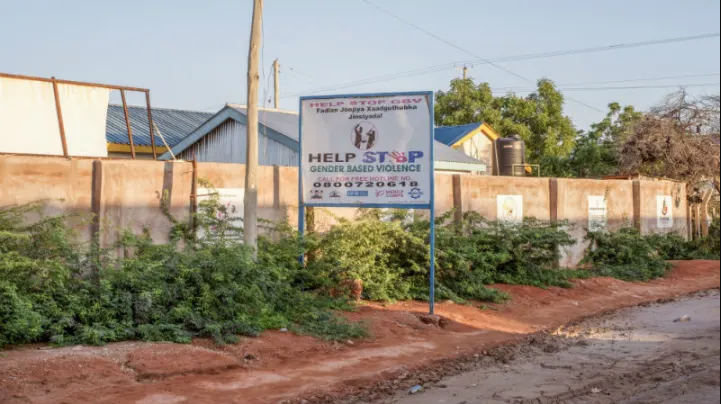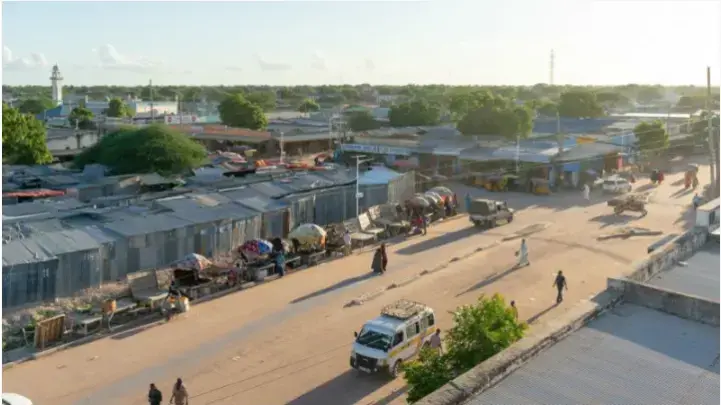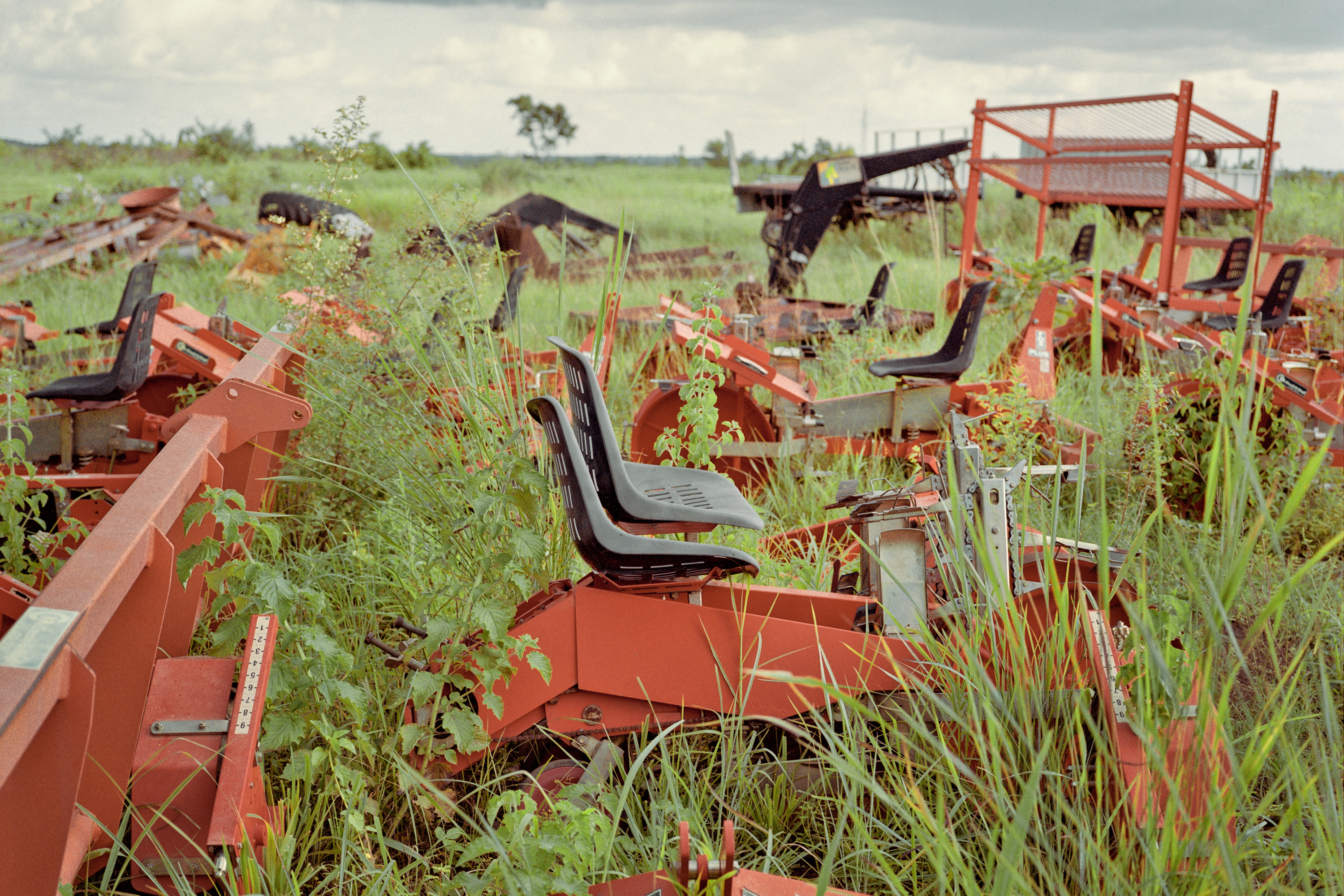
View the original version of this story at Devex
WAJIR TOWN, Kenya — One afternoon in March 2018, Mary’s mother sent her to the market for sugar. Mary was 14 years old, and it was a school day. Although her father works 10 hours a day selling produce, Mary’s family could not afford to enroll all 12 of their children in classes. She often spends time at her mother’s home in a village called Wagalla. Her father and his second wife live in nearby Wajir Town.
When Mary — whose name has been changed to protect the identity of a minor — arrived back home from the market she was crying. She had been running. Her clothes were torn. She told her mother that on the way home she had been raped.
After her brother arrived and learned what had happened, he reported the crime to the local government administrator, who called the local police station. While Mary and her family reported the crime soon after the attack took place, according to court documents reviewed by Devex, a police officer did not arrive at her home until the following morning. The officer brought Mary to the hospital where they took her statement, and where a clinical officer performed an examination.
Mary said she knew the perpetrator and identified him to the police. He was arrested the same day.
While Mary’s family did not consider the wait for medical attention and police help to be particularly out of the ordinary in a region where reporting sexual abuse is rare, the wait could have — in theory — been avoided. In 2015, on International Women’s Day, Wajir county’s department of gender and social services opened a gender violence hotline, intended to ease reporting and expedite the investigation and prosecution of crimes including rape, pedophilia, abuse, and sexual harassment. It was publicized through the local Wajir community radio and on billboards.
The idea was to centralize reporting so each case would be quickly communicated to relevant departments, ensuring the survivor received immediate emergency health care, an accurate forensic analysis, and police assistance. Staff from different agencies, both government and nongovernmental, and including a police officer, formed a gender technical working group to plan the initiative.
The toll-free hotline, implemented by NGOs including Mercy Corps and the International Rescue Committee, with funding from the United Kingdom Department for International Development, was to be staffed by gender experts who would receive reports and, in the case of physical violence, immediately alert the health department and police. The health department would then dispatch an ambulance to bring the victim to a medical facility for examination, where a police officer would take their statement. In cases where DNA testing was necessary, a police officer was to transport the test to Nairobi for processing.
The hotline ‘has a problem’
On March 3, 2018, a resident of Wajir named Ismail sent a cryptic SMS message to the phone number advertised to report on failed aid projects. Ismail, who only provided his first name, referred to the 24-hour hotline and wrote simply that it “has a problem.” Attempts to contact Ismail by phone were unsuccessful.
Devex traveled to Wajir on a fact-finding mission, and while visiting the police station and court, made contact with residents who were present for hearings of their rape and assault cases.
Follow-up reporting by Devex revealed that for parts of 2018 — at some points, for months at a time — the gender violence hotline was out of order. At times when it was working, at least one of the gender experts manning the hotline was not passing reports onto the police. Multiple local police officers told Devex they were unaware of the hotline’s existence.

John Burns, Mercy Corps Kenya program director, said the organization, through its “BRACED” program, “provided training, equipment, and supported the start-up and launch of the hotline, as well as the costs of the toll free number for the first year, and then the management was handed over to the Gender Directorate of the County Government, in order to promote long-term sustainability.”
Kellie Ryan, IRC’s senior global communications officer for Africa and Yemen, said the organization trained both Mercy Corps and Wajir County government employees to assist them in forming a gender technical working group and the gender desk.
“We then supported WASDA [a local NGO] to continue ensuring that coordination of [gender-based violence responders] continues, with the county government fully managing the GBV hotline,” she wrote via email.
WASDA did not respond to several emailed requests for comment and did not answer phone calls.
Burns, as well as Ubah Aden, Wajir County director for gender, said that the hotline worked well for the first year, but by early 2018 had encountered problems.
In May, Devex attempted to call the toll-free hotline six days in a row. For the first five days, the calls could not be completed. On the sixth attempt, a gender officer, Amina Adan, answered.
Adan told Devex that the line had been out of order due to a technical issue for two months and that she was in Nairobi, 435 miles away, having it repaired. The hotline was meant to be a 24-hour service staffed by two people, who carried the phone with them in order to attend to it at all times, Adan explained.
In May, Mercy Corps was aware that the phone line had been out of service for some time: “Further inquiries revealed that the payment had slipped through the cracks due to slow disbursements of government funds to the county departments,” Burns said.
At that point, the program was no longer under Mercy Corps’ management, but had been handed over entirely to the local government.
A month later, back in Wajir, Adan told Devex she had received several reports through the hotline since the service had been reinstated, but that these had all been reports of child marriage, not rape. She had referred these reports to the department of education, not to the police. Her regular contact at the police station was on maternity leave, she said.
Adan speculated that one reason she had not received any reports of rape since the service came back on was that the phone number for the service — 0800720618 — was difficult to remember, particularly since the advertising campaign meant to accompany the hotline service had run out of funding.
She added that the popularity of the Maslah system — in which community elders meet to solve disputes and determine punishments — added to the challenge of convincing people to report through official channels. In these informal courts, if an accused person is found guilty, their family is fined a number of camels, and, in some cases, ordered to marry the victim. Ibrahim Omar, the officer in charge of Wajir Central police station, said that violence against women often goes unreported to the police due to this system, as well as unreliable mobile networks.
The awareness gap
Aden, the county gender director, declined to share the hotline’s budget, but said the funding allocated by the county government was low to begin with and has been cut each year since the hotline launched. She said this has made it impossible for the department to buy its own vehicle, leaving them to rely on the health department’s ambulance or vehicles from other government agencies, the police, or NGOs.
The county government did not respond to requests for information about the gender department’s budget. The budget for the larger department of education, youth, gender, and social services, which includes Aden’s department was just under $8.2 million for 2017-2018, according to documents reviewed by Devex.

Mohamed Omar, a member of the technical working group and executive director of Wajir Paralegal Network, said many NGOs and government agencies had been advocating against the Maslah system and, for this reason among others, the hotline was well-received when it was announced.
Mercy Corps supported publicization of the hotline from its launch through early 2017, including on local radio, billboards, banners, and fliers. Since Mercy Corps handed the hotline back over to the government, the health department has been promoting the hotline through radio talk shows about gender violence, according to Aden. It also received positive media attention from international news outlets including Reuters and Mashable.
When Devex asked 10 residents of Wajir Town whether they had heard of the hotline, they all said no.
Christabel — whose surname Devex is withholding — said that when she was attacked by a fellow hawker, a friend rushed her to the hospital and alerted the police, who came to the facility to take her statement. Neither Christabel nor her friend had been aware of the gender hotline until speaking with Devex.
The two police seniors in charge of the Wajir Central police station and the police division of Wajir East, told Devex they had not heard of a toll-free line hosted by the gender department. One of them, Jotham Wanyama, the officer commanding the police division, told Devex the police department has a direct line for reporting gender-based violence, staffed by four female police officers. He said that when people call the general emergency number to report a gender-based crime, they are transferred to this desk.
This is the desk that Amina Adan and her colleague call. Another police officer, Felistas Movena, who has been at the gender desk for two years in Wajir Central police station, had also never heard of the toll-free gender hotline. That is despite the fact that she and other police officers had received training on handling gender-based violence cases from NGOs including Mercy Corps, she added. Movena added that most victims who report sexual assault do so in person rather than calling.
Aden said the police are aware of her department's gender desk and downplayed the apparent lack of information revealed by Devex’s reporting. She attributed it to the fact that the officer in charge of the Wajir Central police station was new.
The gender desk at the Wajir Central police station occupies a small cubicle. Their phone line is also sometimes shut off, said Omar, the officer in charge of Wajir Central police station. “The [line] we have was provided by KCB [Kenya Commercial Bank], but sometimes it gets out of order and maintenance is a problem,” Omar said.
Attribution questions
The gender technical working committee shared reports detailing the hotline’s success with the media and the partners including Mercy Corps, which Burns showed to Devex.
“Our understanding is that the hotline has been well received and police records have shown a steady increase in the number of convicted rape cases since it was launched in 2015, from zero in 2014 to 31 in 2017, which have been attributed to the hotline,” Burns said.
At the Wajir law courts, Rashid Ishmael, a paralegal, is following up on cases of gender-based violence, which is his specialty. Between February-May 2018, he said that there had been an increase in the number of cases that were taken to court. Three cases of sexual assault against minors were before the court in May 2018, when he spoke to Devex.
Ishmael visits police stations, scours reports for gender-based violence cases, and then contacts the victims to educate them on their rights and encourage them to file a case in court. He is upbeat that in the past few months, the conviction rate for gender-based violence has increased to 90 percent, which he attributed to more proactive efforts to educate victims and follow up on their cases.
Ishmael, however, has never heard of the hotline, and said he isn’t aware of any case that was reported through the hotline. Case files note how the crime was reported.
One month after Mary’s rape, the case was concluded. The accused was acquitted of all charges due to insufficient evidence. Omar of the Wajir Paralegal Network said this was largely because the physical examination on Mary was delayed, hampering the case’s ability to link the alleged perpetrator to the crime.
“This is an issue of response,” the paralegal network’s Omar said. “The victim’s family may not have knowledge on preservation of evidence. Due to lack of a quick response, something that the hotline was supposed to provide, evidence wasn’t preserved and justice was denied to Mary.”
In dismissing the case, the judge cited “reasonable doubts” that Mary was ever sexually assaulted.
Continue reading the series, Part 2: In Kenya’s largest slum, the World Bank battles cartels for control of electricity and learn more about What Went Wrong? here.






